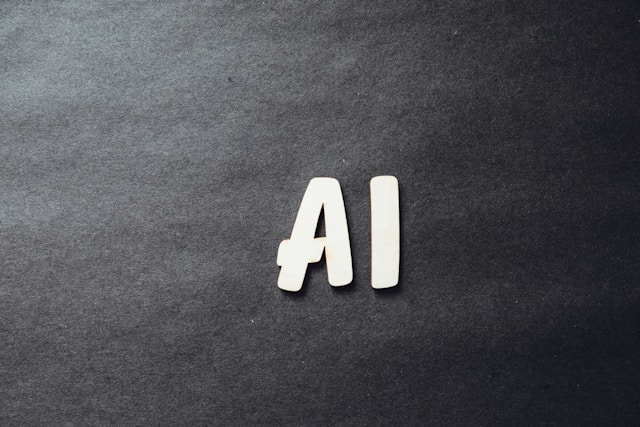
Artificial Intelligence is no longer a futuristic concept; it’s now the backbone of innovation across nearly every industry. As we head into 2026, AI redefines how businesses operate, compete, and grow. From personalized marketing and smart automation to intelligent cybersecurity and predictive analytics, the future of AI is unfolding at an unprecedented pace.
For startups, SMBs, and large enterprises, staying ahead of the curve is no longer optional; it’s a strategic necessity. Those who embrace AI-driven transformation early are reaping the rewards in efficiency, customer satisfaction, and market leadership. Those who don’t? Risk falling behind.
>> Related Post: 10 Ways AI Can Improve Your Social Media Strategy
Why AI Innovation Matters in 2026
AI has evolved rapidly since the early 2020s, moving from experimental to essential. Today, it powers everything from product recommendations and fraud detection to customer service and supply chain optimization. But 2026 is different; the pace of innovation is accelerating, and the impact is becoming more industry-specific and outcome-driven.
AI is driving competitive advantages previously out of reach for most businesses across sectors like healthcare, retail, finance, logistics, and manufacturing. Intelligent automation is slashing costs, real-time insights are unlocking smarter decisions, and AI-powered tools are augmenting human productivity at scale.
Recent forecasts suggest exponential AI market growth in 2026, with global AI spending expected to surpass $500 billion. Businesses investing in the right tools and strategies will be better positioned to lead, adapt, and thrive in the evolving digital economy.
>> Related Post: AI in HR: Use Cases, Examples & Pros/Cons [2025]
Top 5 Artificial Intelligence Trends for 2026:
1. AI-Augmented Workforces
2026 marks a new era of collaboration between humans and machines, not in competition but in partnership. The rise of the augmented workforce means AI is now deeply integrated into daily operations, helping teams work smarter, not harder.
Think AI copilots that assist with writing code, summarizing meetings, or managing calendars. Intelligent assistants can now handle administrative tasks, analyze performance data, and offer real-time insights to aid decision-making.
For SMEs and lean teams, this is a game-changer. Without needing to scale up headcount, businesses can boost productivity, streamline workflows, and make faster, data-backed decisions, all thanks to accessible AI tools.
2. Explainable and Ethical AI
As AI continues to influence decisions in finance, healthcare, and hiring, the demand for transparency is skyrocketing. In 2026, Explainable AI (XAI) isn’t just a nice-to-have, it’s essential.
From new AI regulations to stronger ethical frameworks, companies are under growing pressure to show how their AI systems make decisions. It’s not enough for AI to be smart; it must also be accountable and fair.
Businesses that prioritize ethical AI practices and invest in explainable models can build greater customer trust, meet compliance standards, and reduce legal risks while benefiting from automation’s power.
3. Industry-Specific AI Models
Generic AI tools give way to vertical, domain-specific models that deliver precision and efficiency for particular industries. In 2026, we’re seeing more businesses shift to fine-tuned AI tailored for their sector.
In healthcare, AI is reading radiology scans with expert-level accuracy. In finance, it’s automating fraud detection and personalized banking. In logistics, it’s forecasting supply chain bottlenecks; in legal terms, it’s speeding up case research.
These niche AI applications deliver better ROI because they understand specific sectors’ unique data, workflows, and compliance needs.
4. Autonomous AI Systems
Imagine systems that monitor themselves, learn from their environment, and take action without human input. That’s the promise of autonomous AI, a trend accelerating in 2026 thanks to self-learning algorithms and edge computing advances.
These systems enable smart factories to adapt on the fly, robots to navigate complex terrains, and infrastructure in smart cities to self-regulate based on real-time conditions.
From self-healing IT networks to autonomous vehicles and drones, businesses adopting these technologies gain speed, reduce downtime, and stay resilient in fast-changing environments.
5. AI-Powered Cybersecurity
As cyber threats evolve, traditional defenses are no longer enough. In 2026, AI will take a front-line role in protecting businesses from attacks.
AI-powered cybersecurity tools can detect real-time anomalies, identify fraud patterns before they escalate, and adapt to new threats faster than any human team could. For businesses of all sizes, this means fewer breaches, faster responses, and less operational disruption.
With AI for threat detection and predictive security, companies are shifting from reactive to proactive strategies, securing their data, systems, and customer trust.
>> Related Post: How to Choose the Right AI Tech Stack in 2025 and Innovation for Brands
How to Prepare Your Business for These AI Trends
Staying ahead of the curve means preparing your business for real, strategic AI adoption; not just chasing hype. Here’s how:
- Evaluate your current workflows to identify opportunities for automation, insight generation, or improved decision-making.
- Upskill your teams with AI literacy and tools that align with their roles. Empower your workforce; don’t replace it.
- Partner with AI consultants like Data Doers to get personalized guidance, implement the right tools, and avoid costly missteps.
- Create an AI-readiness roadmap tailored to your business size, sector, and 2026 goals.
>> Related Post: 5 Types of AI Every Small Business Should Know in 2025
AI & ML Services Offered by DataDoers:
At DataDoers, we specialize in delivering innovative AI solutions:
- AI Chatbot Development Services/AI Assistant
- Computer Vision Development & Consulting Services
- Agentic AI Consulting Services
>> Related Post: AI in Digital Marketing: Use Cases, Examples & Pros/Cons [2025]
Conclusion
As we head into 2026, AI moves from an optional add-on to a core business engine. The top 5 AI trends shape how companies operate, compete, and grow, from AI-augmented workforces and ethical AI to vertical models, autonomous systems, and AI-powered cybersecurity.
Start to explore, experiment, and scale with AI before your competitors do. Whether you’re looking to boost productivity, reduce risk, or build new revenue streams, Data Doers can help you develop and execute a forward-thinking AI roadmap.
FAQs
- What industries will benefit most from AI in 2026?
Healthcare, finance, logistics, manufacturing, retail, and cybersecurity will see the most dramatic gains from AI adoption, especially with the rise of industry-specific models. - Is AI still relevant for small businesses?
Absolutely. With affordable tools like AI copilots, automation platforms, and no-code AI solutions, even small teams can scale productivity and compete with more prominent players. - What is the difference between general AI and industry-specific AI?
General AI is built to handle a wide range of tasks. At the same time, industry-specific AI is fine-tuned to understand sector-specific data, language, and workflows, offering better accuracy and ROI. - How do I know which trend is right for my business?
Start by identifying your key pain points or goals. Then, consult AI experts (like Data Doers) who can align current tech capabilities with your strategic needs.




